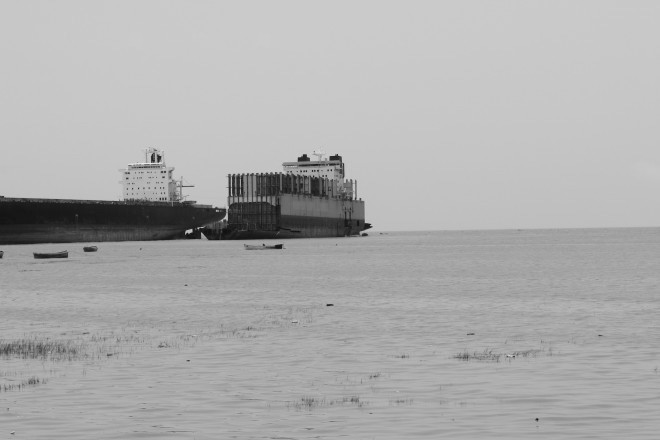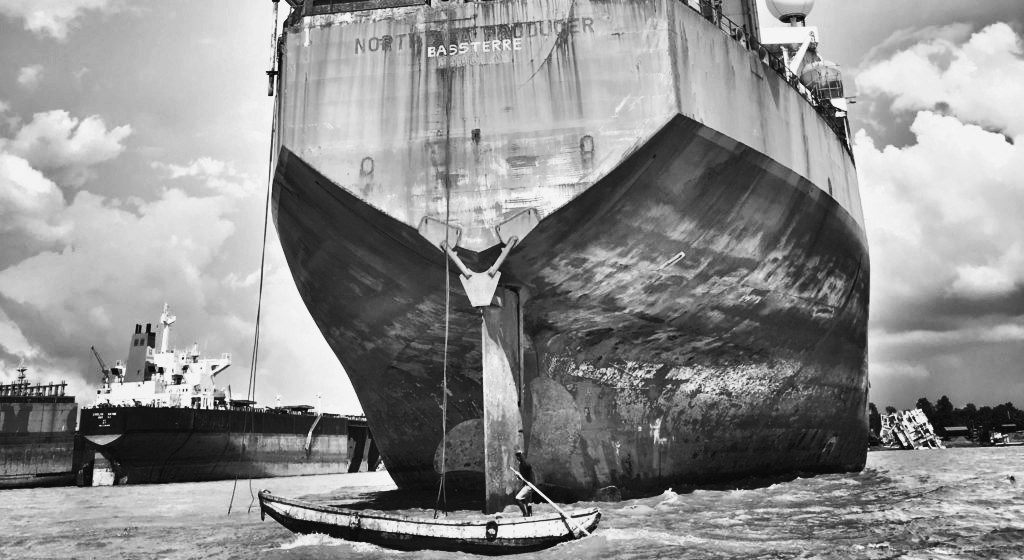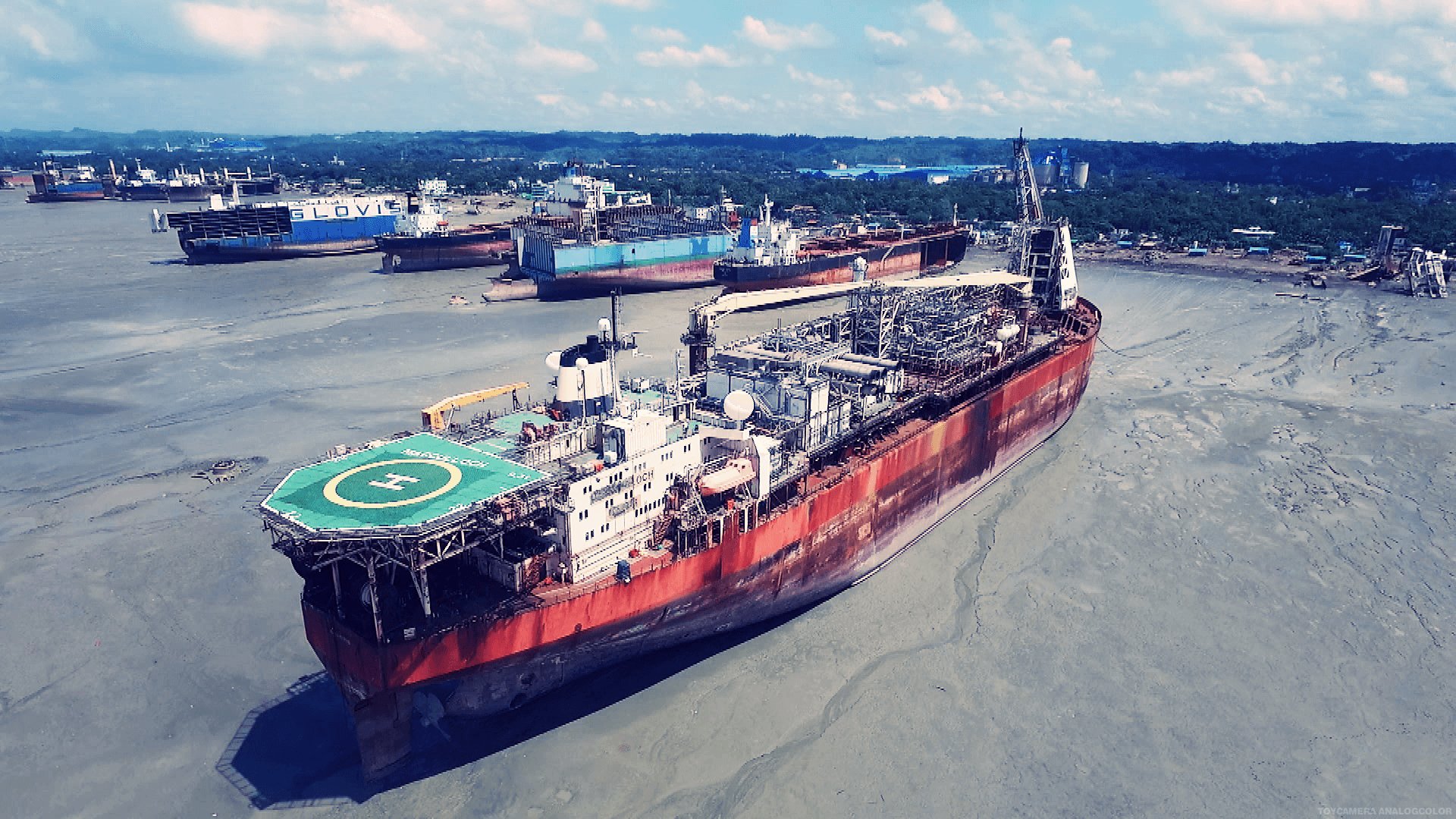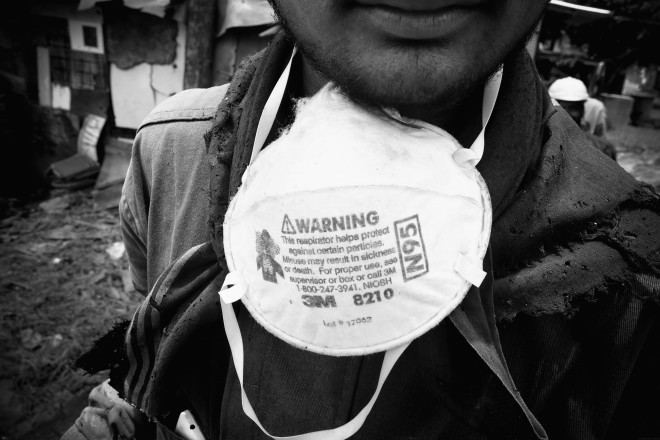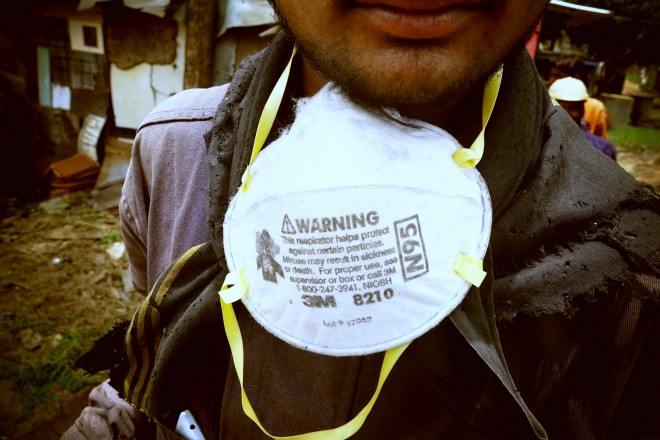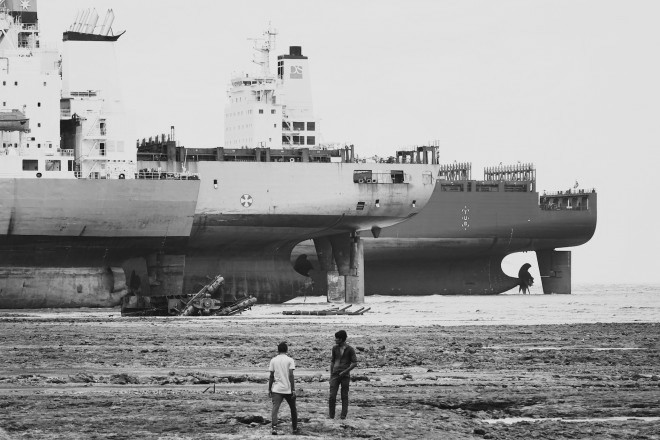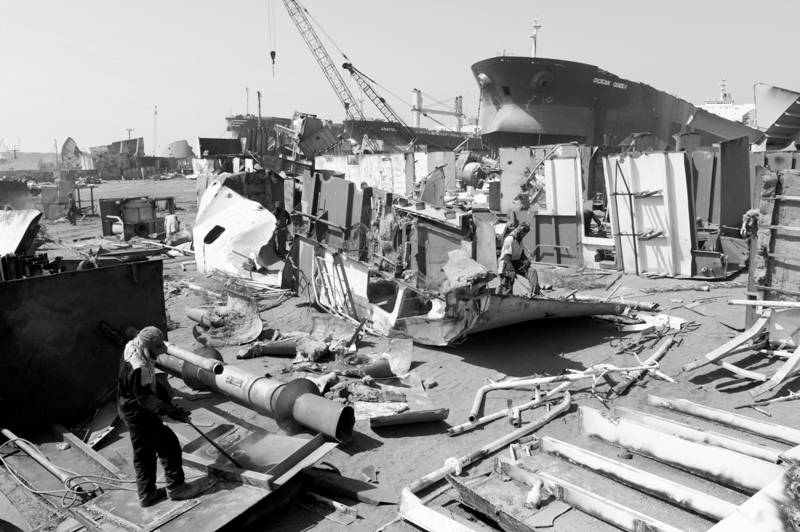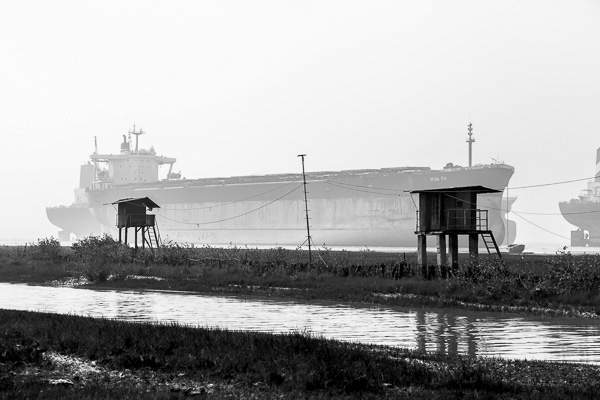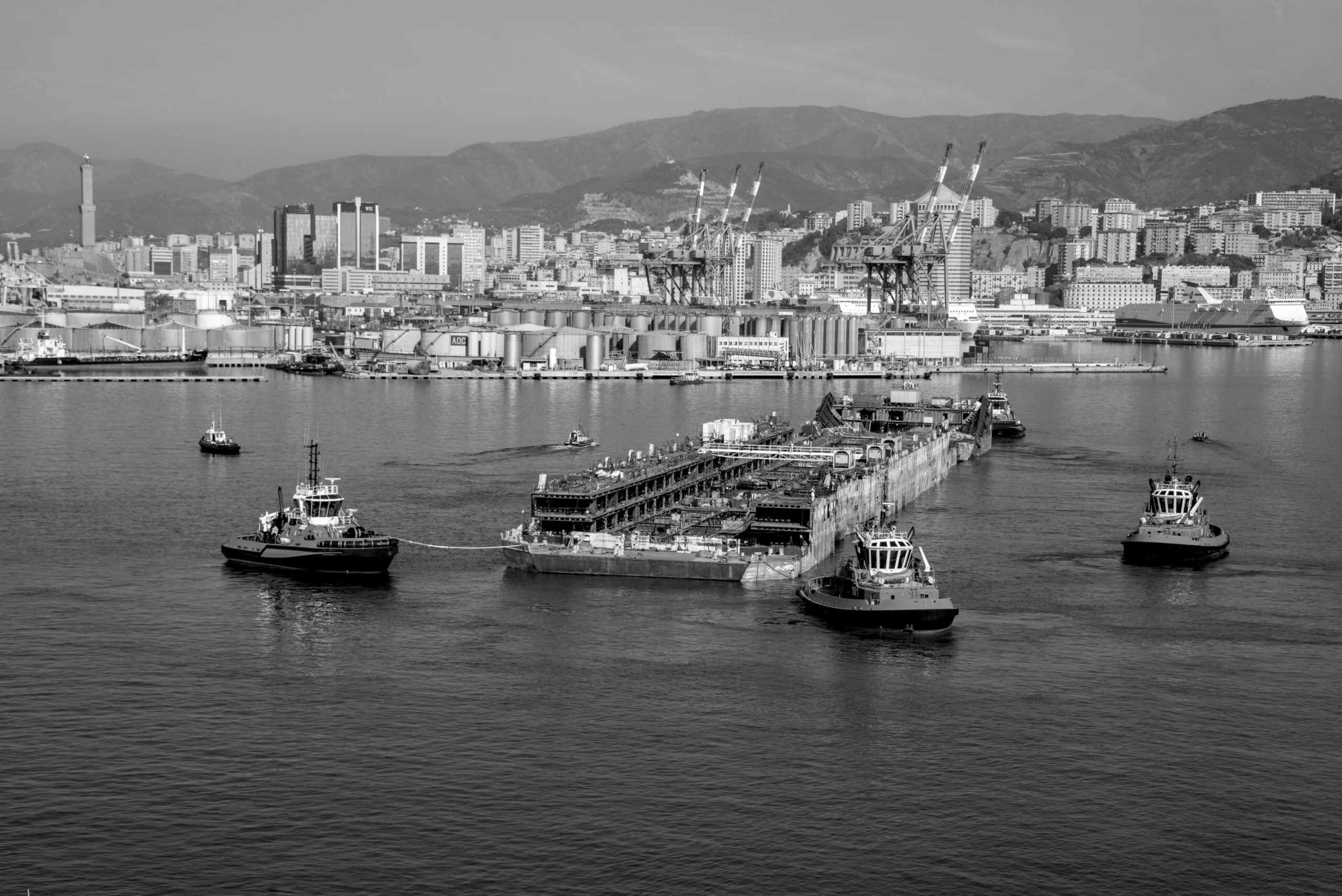A third report by the investigative journalists of Danwatch, “Maersk and the shadowy deals”, reveals that the Danish container ship giant has incentivised the sale of 14 ships to substandard shipbreaking yards on the beaches of Bangladesh and India in 2013/2014. At the same time, Maersk prided itself with a progressive ship recycling policy and its cooperation with state-of-the-art yards in China. The report in Danish was released last week and has created a media uproar in Denmark. The story has been widely featured on TV2, daily newspaper Politiken and other major outlets. It triggered critical reactions from a wide range of stakeholders and forced Maersk to admit that such shady deals should never have been made.
Late in 2013, Maersk sought early termination of a charter party for 14 ships due to the vessels’ poor rentability and the general overcapacity in the container ship market. Maersk had previously been the owner of the vessels before they sold them to a finance construct in Germany, MPC Flottenfonds III, in 2009. Maersk then continued operating them based on a long-term charter. In 2014, the Platform investigated that the 14 vessels operated by Maersk had ended up in some of the worst shipbreaking yards in Bangladesh and India, and contacted Jacob Sterling, then Head of Sustainability at Maersk. He said: “We encourage other ship owners to recycle their ships in a responsible way, including those that we charter ships from.” In an article, Sterling also stated: “NGOs argue that beaching must end now. We agree”.
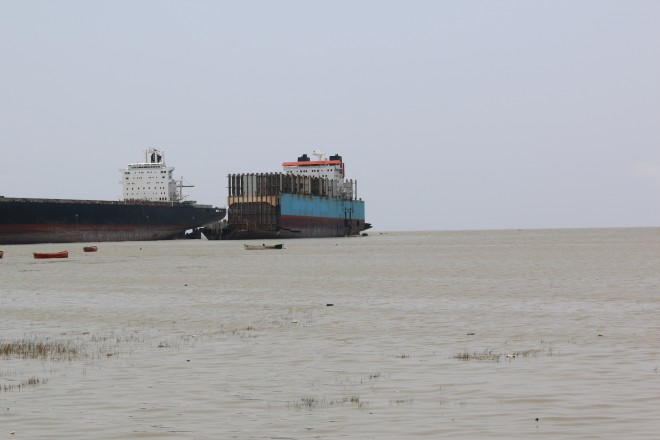
Sterling’s response regarding the chartered ships was a lie: a quick look into Maersk’s addendum to the charter contract is enough to understand that. First, Maersk explicitly asked the German owner through a clause in the contract to ensure the immediate demolition of the vessels in order to get them off the market. Second, Maersk demanded in another clause that the vessels had to be sold for the highest price available on the scrap market – without any consideration of environmental or social standards. With the latter clause, Maersk put pressure on the ship fund to sell the 14 vessels for a minimum price of 447 USD per ton, a price that corresponded at the time to the prices offered in South Asian beaching yards. No facility operating under safe and sound conditions would have been able to pay such a high price. Moreover, the contract between Maersk and MPC states that if MPC were to sell the vessels for a lower price, Maersk would have to pay the difference. And, crucially, if MPC managed to sell for a higher price, it was under an obligation to pay Maersk the difference in profit earned. The MPC case is likely not an isolated one. The Platform found that Maersk had sold another three older ships to Greek owner Danaos and immediately chartered them back on a long-term basis. Also these three vessels ended up in beaching yards.

After Maersk’s business tactics were revealed in the Danish press, the shipping line has received strong criticism for its unsustainable shipbreaking practices from Danish Parliamentarians, leading Danish environmental organisations, and its own investors.

Danwatch’s investigations at Maersk’s Shree Ram yard in Alang have shown severe shortcomings related to fundamental labour rights, environmental safeguards and basic health and safety standards. Maersk’s support of the beaching yards in Alang stalls any development in India to move ship recycling to modern industrial platforms. Such a transition was already supported by the Government of Gujarat and investors in the 1990s when the Pipavav dry dock was built in order to bring the Indian ship recycling industry to an acceptable level. However, the shipping industry’s profits on the beaches of Alang have consolidated the beaching yards’ monopoly in India, while innovative new businesses from India have been stifled.

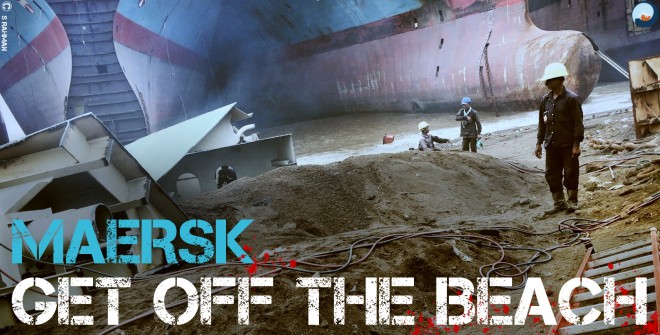
NOTES
[1] The Platform has sent a letter to the UK Environment Minister on 25 October.
[2] In addition to the Danwatch report, see also coverage in Danish TV2 and Politiken.
[3] The North Sea Producer was used as an oil and gas floating production storage and offloading (FPSO) vessel in the North Sea at the MacCulloch oil field, 250km north-east of Aberdeen, for ConocoPhillips. When the MacCulloch field was closed, the FPSO was brought to Teesport in Middleborough.
[4] Conquistador Shipping Corporation is domiciled at P.O. Box 583, Morton House - Government
Road Charlestown, Nevis. Offshore leaks documentation clearly indicated this is a typical post box company address. See also this link. In order to disguise their involvement in the sale of end-of-life vessels, cash buyers usually use anonymous post box companies, often located in the state whose flag of convenience is used for the last voyage. Similarly, the contracts with the local shipbreaking yard, or papers for the authorities, are signed by local agents so that the name and signature of the cash buyer does not appear on any document.

